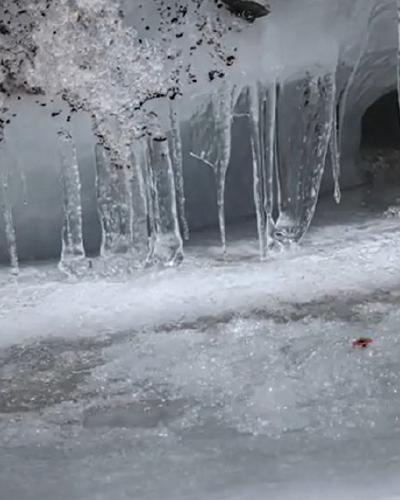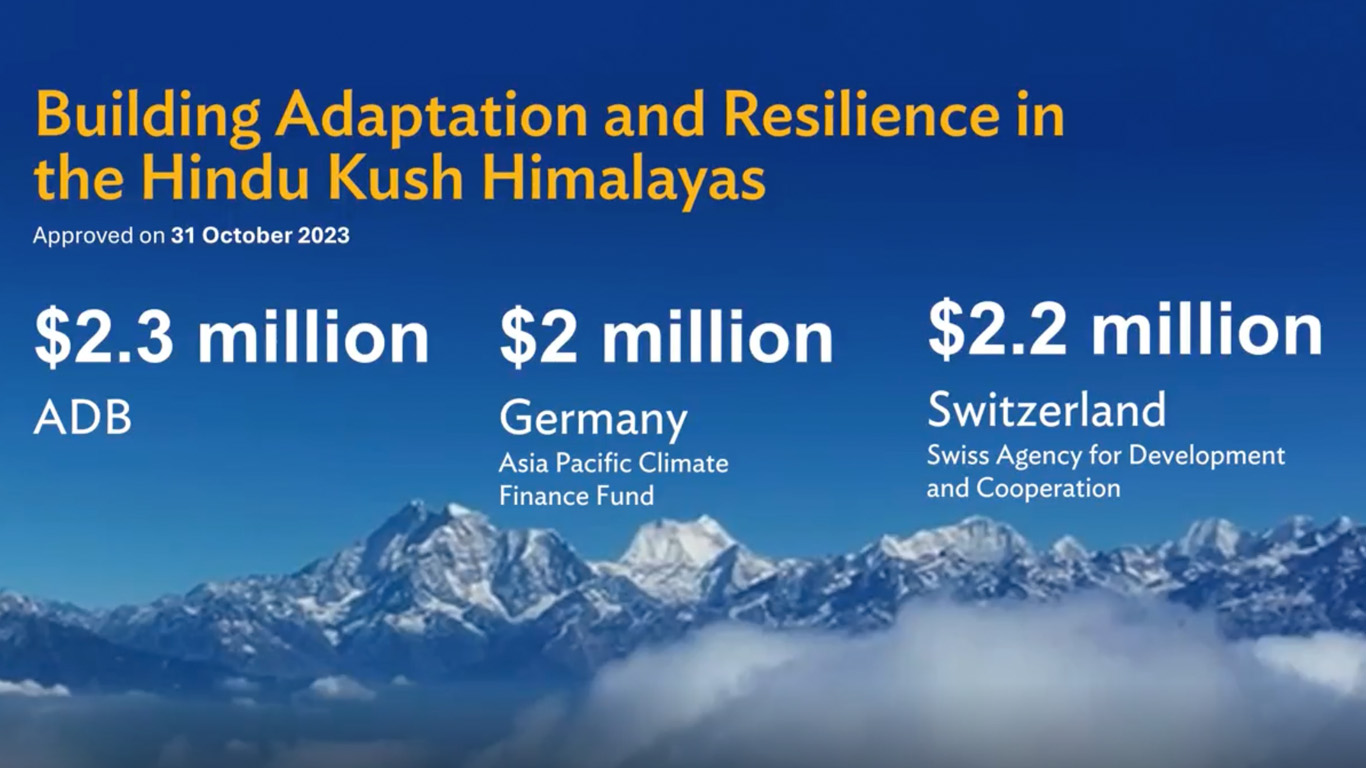Highly vulnerable to rising temperatures, the Hindu Kush Himalayas is a critical water source for nearly 2 billion people. ADB, Germany, and Switzerland are working with Nepal and Bhutan to help manage hazard risks in the Hindu Kush Himalayas and to ensure that development projects are climate resilient.
Listen to the story
The Hindu Kush Himalayas is warming rapidly. As the source of 10 major rivers, the icy mountain range sustains the livelihoods of 240 million people in its catchments and many more people downstream. But with temperatures projected to rise by 3°C, glaciers could lose up to 75% of their volume by 2100, leading to severe water stress and more frequent disasters.
Economic losses from disasters caused by natural hazards—landslides, earthquakes, and floods—are already increasing exponentially. The Melamchi flood in Nepal in 2021, for example, damaged critical infrastructure and disrupted essential services. Urgent action is needed to align financial flows with climate-resilient investments.
“ADB’s partnership with Germany and Switzerland is critical to future developments in the Hindu Kush Himalayas, where nearly 2 billion people depend on the region’s glaciers and cryosphere for clean water.”

In 2023, ADB launched an initiative to bridge the climate and disaster knowledge and financing gaps in the planning, design, implementation, and sustainability of development projects in the Hindu Kush Himalayas. ADB will work with Bhutan and Nepal to strengthen multi-hazard risk assessments, improve early warning systems and climate investment services, and integrate climate risk considerations into project planning and decision-making. Germany (through its Asia-Pacific Climate Finance Fund) and Switzerland (through the Swiss Agency for Development and Cooperation) are cofinancing the initiative. Switzerland is also providing technical expertise.
More specifically, the initiative will focus on improving multi-hazard risk assessments, strengthening national risk management systems, identifying disaster hotspots, and exploring opportunities for regional collaboration (such as sharing information on hazards across borders). This involves scoping existing data, strengthening disaster databases, developing risk maps, and conducting detailed assessments in priority catchments. It will also develop a comprehensive multi-hazard early warning system approach.
The project will support the development of climate and disaster risk management and finance services for resilient projects that will rely on innovative financial services (such as thematic bonds and insurance), exploring risk advisory and de-risking services, and identifying mechanisms to attract private sector financing.
More importantly, through regional dialogue, dissemination of project findings, and comprehensive capacity building, the project will support and enhance awareness and knowledge exchange among countries on climate and disaster risk assessment.
“ADB’s partnership with Germany and Switzerland is critical to future developments in the Hindu Kush Himalayas, where nearly 2 billion people depend on the region’s glaciers and cryosphere for clean water. We need to ensure that knowledge solutions and finance flow steadily to enable projects that are more resilient to the changes coming in the region,” said Declan Magee, project officer and principal economist at ADB.



